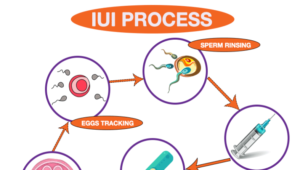Pregnancy is a time of joy. Soon you will hold your little bundle of joy in your arms. However, if
your pregnancy is considered high-risk, there are precautions you must take to ensure a healthy
and successful pregnancy.
A high-risk pregnancy is when certain conditions increase the chances of complications for the
mother or baby. Factors like age, existing health issues, multiple pregnancies, or gestational
diabetes may be the culprit. Here, specialized medical care and monitoring are essential to
ensure a safe and healthy outcome for both the pregnant woman and the baby.
But what are the factors that are categorized as high-risk? In this article, we bring you all the
information so you can stay informed and take the necessary precautions.
10 Factors That Come Under High-Risk Pregnancy:
These factors require additional medical care and close monitoring to make sure you have a
complication-free pregnancy.
Advanced Maternal Age
Women who are 35 or older can be at an increased risk for pregnancy complications such as
gestational diabetes and chromosomal abnormalities.
Medical Conditions
Pre-existing conditions such as diabetes, hypertension, or autoimmune disorders can increase
the risk of complications during pregnancy.
Multiple Pregnancies
Carrying twins, triplets, or more puts you at risk of complications such as premature birth and
low birth weight. From start to delivery, comprehensive care becomes necessary.
Previous Pregnancy Complications
If you have experienced complications in previous pregnancies, such as preterm birth or
preeclampsia, it can be a high-risk pregnancy.
History of Miscarriage or Stillbirth
If you have had miscarriages or stillbirths there are chances of complications.
Infections and Chronic Illnesses
Certain infections, such as herpes, and chronic illnesses like lupus or heart disease, can pose
risks during pregnancy.
Poor Lifestyle Choices
Smoking, excessive alcohol consumption, and illicit drug use can contribute to pregnancy
complications.
Obesity
Being significantly overweight increases the risk of gestational diabetes, hypertension, and other
issues during pregnancy.
Poorly Controlled Diabetes
If you are someone with poorly managed diabetes, whether pre-existing or gestational, it can be
categorized as a high-risk pregnancy.
Genetic Factors
Some pregnancies may be at higher risk due to genetic factors, which can be identified through
genetic testing and counseling.
How To Manage High-Risk Pregnancies?
If you are worried, don’t be. Here’s how you can manage high-risk pregnancies.
Specialized Prenatal Care
You must speak with healthcare providers who are experienced in managing high-risk
pregnancies. Regular and more frequent prenatal visits may be essential. Make sure you have a
plan of action in hand.
Medical Management
You must learn to manage your pre-existing conditions like diabetes or hypertension through
medication and lifestyle adjustments. If you are in doubt, speak with your doctor for more
information.
Lifestyle Modifications
Have a healthy lifestyle with a balanced diet, regular exercise, and adequate rest. Also, make
sure you quit harmful habits like smoking, excessive alcohol consumption, and any drug use.
Genetic Counseling
Go for genetic counseling and testing to identify and address potential genetic factors.
Understand the implications and make informed decisions regarding the pregnancy.
Monitoring Fetal Health
Regular ultrasounds and other fetal monitoring techniques may be necessary to understand
your baby’s growth and development. Try to learn more about them.
Preventing Preterm Birth
If required, your doctor may administer medications to prevent preterm labor if necessary. You
must discuss and implement strategies to reduce the risk of preterm birth.
Hydration and Nutrition
Make sure you are always adequately hydrated and opt for nutritious food to support yourself
and your fetal health. You can also consult a nutritionist to address specific dietary needs.
Psychological Support
This is the time when you need emotional support. So, don’t hesitate to opt for counseling to
manage stress and anxiety. You can join support groups or seek counseling to cope with the
emotional aspects of a high-risk pregnancy.
Remember, always consult with a doctor for personalized advice and a customized plan as per
your specific needs and conditions to manage your high-risk pregnancy. If any doubt, don’t
hesitate to speak with them and understand more
To book an appointment with our expert Dr. Kiranmayee call us at +91 9121459595





